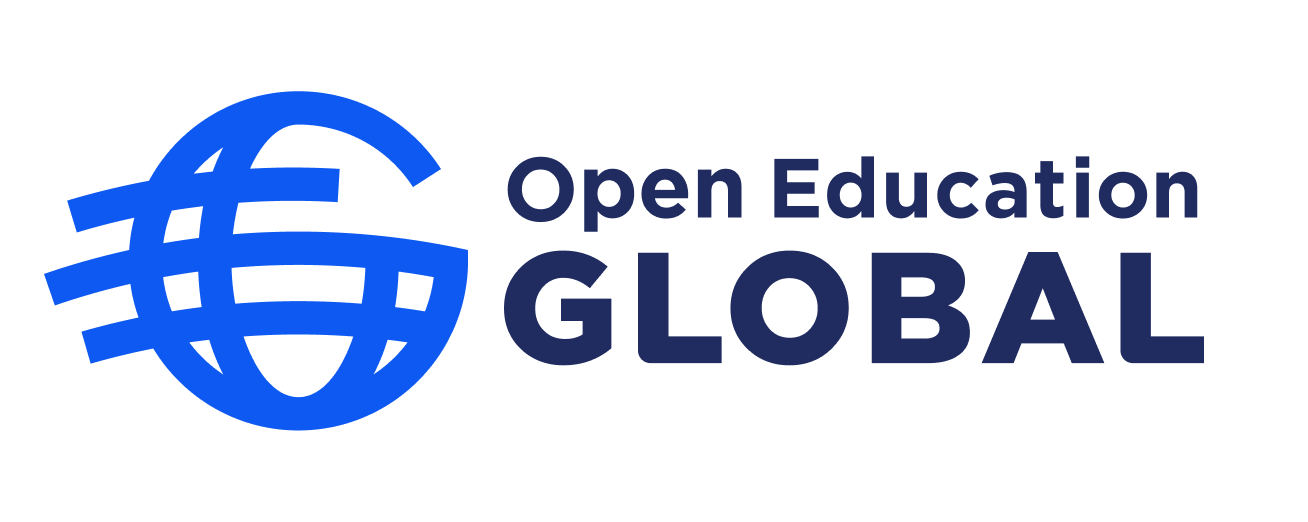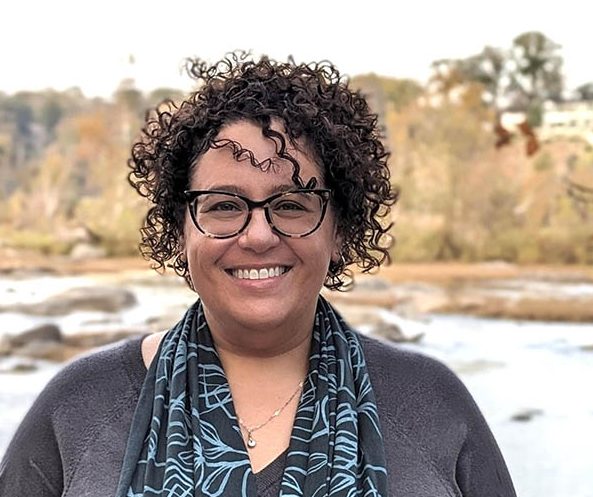
Over the last few months, you have probably begun to notice changes to the Community College Consortium for Open Educational Resources (CCCOER) team as Heather Blicher transitions into her role as the program director. You may be asking yourself, who is Heather Blicher, and what drove her to apply to steward the CCCOER community?
So we asked her a few questions about her journey through the open movement that has now led her to CCCOER.
What role has the Open movement played in your personal journey?
As an undergraduate, I attended community college and struggled to pay for textbooks. Then, as a librarian in community colleges, I saw first-hand how students continued to struggle with the cost, including waiting for financial aid to kick in or simply deciding it wasn’t in their budget that semester. They often relied on libraries to provide textbooks, copies we borrowed from professors that were often out of date. Imagine students arriving to campus early and staying late to use these textbooks on “reserve,” only to be used within the library due to high demand, attempting to complete their assignments. When the opportunity to become involved in OER became available, I left that position to start a new one where I was supported to pursue it.
As the Online Learning Librarian for Northern Virginia Community College , I balanced supporting students, instructors, instructional designers, and others by developing library services for a large distance learning program, including an embedded library program in 300+ course sections in 60+ online courses. This involved teaching online webinars, training sessions, and creating online learning objects, including videos, research guides, and infographics to embed in the LMS. This focus lent itself well to OER and I’ve never looked back, always finding a way to incorporate OER into my positions.
What’s your latest proudest Open Education moment?

Early on, I realized that OER was about more than just affordability. I recognized that students want to see themselves in the course material, whether it’s through images, content, or other elements, and OER is an opportunity to make that happen. As an equity consultant for Open Oregon Educational Resources, I co-wrote the anchor module of our “DEI Toolkit,” Doing the Work: Diversity, Equity, and Inclusion in Open Educational Resources. Collaborating with the leadership team of the Targeted Pathways project for over 2 years led to creating the toolkit. My hope is that we will continue to improve upon it, and others will adapt and adopt it to fit their needs, continuing to explore the intersections between OER and diversity, equity, and inclusion.
What does being the Program Director of CCCOER mean to you?
When I started my first position involving OER, my supervisor and mentor encouraged me to connect with CCCOER through the community listserv and to attend the free webinars. OER was fairly new, and there were no courses or certificate programs to teach you about the open movement, let alone the practical day-to-day knowledge you needed to make progress in OER in higher education.
Occasionally, I would exchange emails with Una, write a blog post, or be a part of a panel with CCCOER. I never imagined that I would end up being a part of the organization that gave me the opportunity to build my foundation in OER.
To be the Program Director is an honor and also a challenge. CCCOER means a great deal to many of my friends, peers, and colleagues in the open space. Una has built a structure that supports the community, and I feel a sense of responsibility to that community to keep doing the work and to grow and expand it as OER continues to grow and expand in its scope and purpose.
What do you hope to achieve with this role?
I want to support open practitioners across community colleges to strengthen their open work and put a spotlight on it. There is so much being done in community colleges involving OER – and it’s being done without the support or budget that universities have to pursue the same. I know firsthand how OER becomes an addition to your other responsibilities, and without an individual’s passion to keep it going, it literally and figuratively falls off the desk to collect dust. We need to do more to support OER practitioners.
At OEGlobal, we’re thrilled to have you join us, Heather! We’re excited about the continued growth of and support for open education practices and resource development and distribution at Community Colleges!
Welcome Heather on OEG Connect
Have you worked with Heather and would love to share your experiences? Do you have questions or just wish to welcome her to the community? Share to the linked OEG Connect page by clicking on the reply button.

